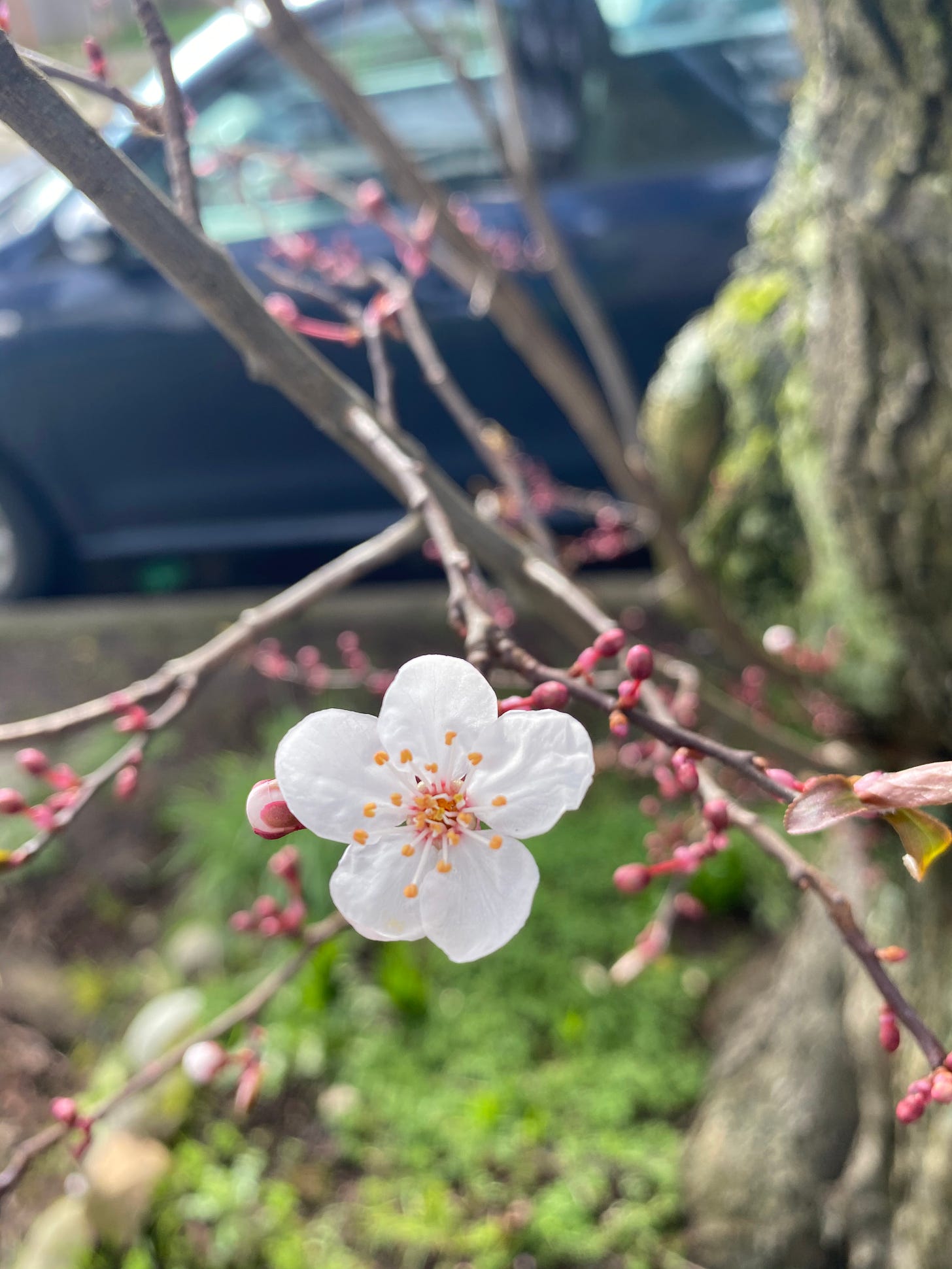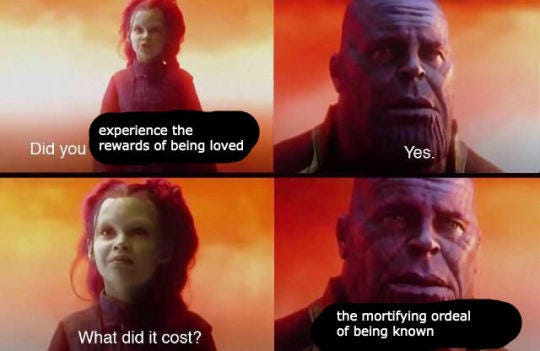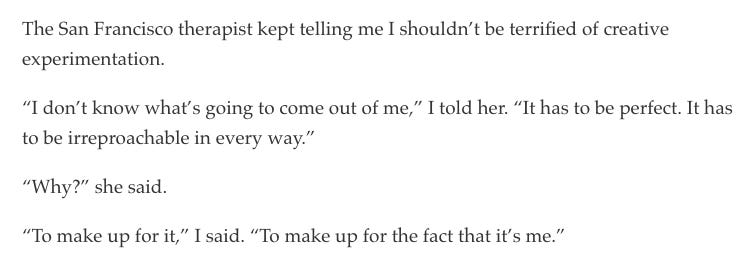Tabs Open #44: It Has To Be Irreproachable In Every Way

Across the street from the school building I worked at until this past September is a place called Moonlight Cafe. It had—still has—the best phở in Seattle, no mean feat in a city with this many Vietnamese restaurants. And a gargantuan bowl of it costs like $7.
For the last six months or so that I worked in that building, I ate lunch there twice a week, sometimes three times if I was really hurting for comfort food. A familiar ritual began to develop: I would walk in, stand awkwardly in the entrance until someone came to seat me, and whichever of the rotating cast of three women got to me first, the ask was always the same:
“Table for…just one?”
A humbling question, that.

It annoyed me at first, truth be told. It made me feel like I wasn’t important enough to remember, like I had to justify myself. Honest to god I have a wife, look at my ring, she just works in a different part of the city. I’m just on my lunch break and I only have 40 minutes before I’m expected in a meeting. My students would rather be caught dead than be seen eating lunch with me in public. And so on.
But in time this scripted call and response—for my answer became just as rote as the question—became another comfortable part of the routine. It was a refreshing change of pace, honestly: the people who worked there were nice but not overly friendly, with none of the presumption that we had to pretend to be friends that has become a corporate expectation in this country. The manic service worker grin, one I practiced over many summers in the hot confines of a barbecue joint, was absent entirely. No amount of previous visits would lead to any assumptions on their part about who I would be eating with or what I would be ordering this time, even though both were always the same.
I say all this not because I want to provide you a good phở recommendation (although really you should eat at Moonlight if you’re ever in Seattle) but because it strikes me as refreshing to feel completely unknown even in a place you frequent. So much of the internet today—and this newsletter is no exception—is dedicated to a baring of the soul to total strangers, trying desperately to expose the inner workings of one’s heart to anyone who might be in a position to love you or admire you for it. This is to say nothing of the arms race of first-person trauma pieces that has defined internet writing for at least five or six years now. Moonlight Cafe is a lovely removal from that vortex: a place where I am nothing more than a hungry mouth to feed, one to be fed politely and professionally with nothing else desired or expected.

I have been blogging and sharing my writing off and on since 2011. (Since we’re talking about the relentless need to overshare oneself online, I should admit that I started blogging because I wanted to get hired by…Barstool Sports. Thank god things don’t work out the way you want them to most of the time.) This is the trade-off I have made: in searching for some kind of love or community or audience, I have also had to give freely of my own opinions, anxieties, hopes, and dreams. I have written some things—and shared them publicly!—that I still think about at night sometimes and cringe. They are not hard to find if for some reason you wanted to do that. I have gained some wonderful friends through this process; I have weakened my relationships with others.

Who am I, anyway? Who are any of us? I have come to realize that for me, the act of sitting down to write is the process of both asking and answering that question. And so putting some of my writing out into the world to be judged—and me along with it—is also an active part of the asking and the answering.
My wife, in her wedding vows, promised to stop trying to read over my shoulder when I’m writing. I shut down completely when that happens and I’m not quite sure why. The most generous interpretation is that I just want her to think I’m a good writer. But I already know she thinks that. The less generous interpretation, which I suspect is the primary one for me, is laid out here by Suzanne Rivecca:

If I believe my writing is an expression of myself, then it terrifies me to have someone see something that isn’t complete, isn’t as good as I can make it. It might lead to an incorrect interpretation of who I am. Why I would be worrying about this re: my wife of all people is beyond me, but the brain is a funny thing. Nevertheless I will keep trying to express myself, and keep trying to get my actions to match what I say on the page.

Because a notion that I have taken some comfort from recently is that we are, simply, the sum total of what we do. Much of our current discourse frames things as quite the opposite: that who we are determines what we do. I did not expect Calvinism to hang around quite so long, truth be told. A moving, troubling essay by Dan Brooks puts this quite well:
It is disheartening, when you have devoted a large portion of your life to teaching a boy that he can achieve what he wants by working hard and choosing actions that express his values, to look at the cover of his school planner and see a word cloud — “responsible,” “safe,” “thoughtful,” “diverse,” the irritatingly un-parallel “spirit” — with the giant word “BE” in the center.
…Thus the children operate in a matrix of general urgings — be good, be safe, be tolerant — that leave unmentioned the specific acts that are the only meaningful expressions of these qualities. Once the assembly is over and the flyers have been handed out, the fixed mindset congeals.
This simple re-framing does not necessarily preclude one from participating in astrology or sorting oneself into a Harry Potter house. It just turns things in a direction that does not require subordinating oneself to what Brooks calls Type of Guy Theory. (To put it another way: you’re not a competitor and ruthless strategist because you’re a Slytherin, you’re a Slytherin because you’re a competitor and ruthless strategist.) It is freeing to know that our natures are not fixed points from which our destiny cannot escape. Our natures are subordinate to our actions. I am not the gatekeeper of any movement or profession but it’s hard to be a writer if you’re not writing, an organizer if you’re not organizing. One need not be doing things constantly, and identities are obviously created over time based on the history of what we’ve done to get where we are. But again, the action precedes the label, not the other way around.
So that’s my challenge for you, and for myself, this week: to go out and be who you say you are. If you do that it’s a lot easier to embrace the love you get back and cope with that mortifying ordeal of being known.




